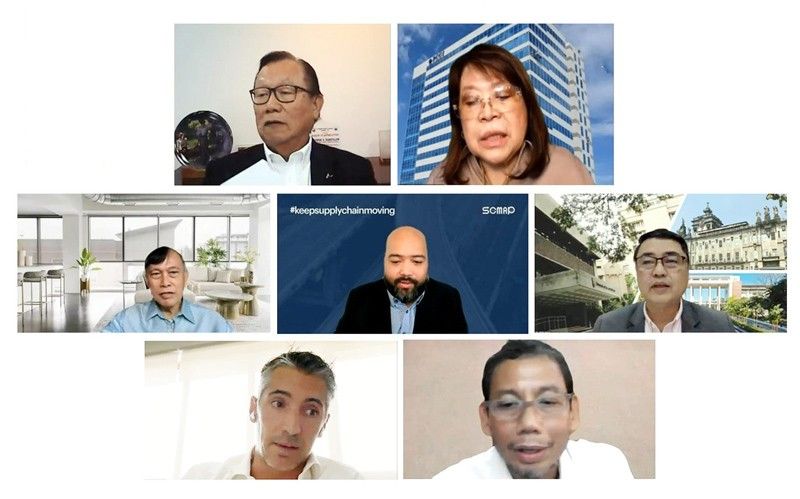Government urged to resolve road, port congestion

MANILA, Philippines — The country’s largest business organization, along with other stakeholders are urging both the outgoing and incoming administration to take urgent action on road and port congestion in Metro Manila to stem economic losses.
In a statement yesterday, the Philippine Chamber of Commerce and Industry (PCCI) said it would submit proposals made by experts to address traffic woes during the group’s recent second general membership meeting.
During the meeting, PCCI president George Barcelon emphasized the importance of transportation and logistics in sustaining the country’s economic gains, as well as in building on reforms that seek to make the country more attractive to investments to create jobs.
“There are a lot of concerns besetting our transportation and logistics industry. These issues need a comprehensive set of measures to curb further problems and avoid more losses to the economy,” he said.
He said the traffic situation in Metro Manila and other major urban areas in the country has become worse.
Citing figures from the Japan International Cooperation Agency, he said the P3.5 billion daily economic costs of traffic congestion in Metro Manila, which could rise to P5.4 billion a day by 2035 if nothing is done, could prevent the country from achieving the long-term vision of quality life for every family and middle-income economy status by 2040.
The more than two hours spent waiting in line for rides and in traffic has not just affected workers’ productivity, but also that of business enterprises.
Experts and stakeholders said during PCCI’s GMM that the best solution for Metro Manila’s traffic situation is to improve mass transportation and decongest the highly populated urban metropolis.
Transportation expert and consultant Rene Santiago said there is a need for more public transportation and to have less cars on the roads.
While work-from-home arrangements have lessened travel demand, he said the share of cars has increased due to COVID-19 threat, and road capacities have been reduced with bicycle lanes in place.
The shortage of buses and jeepneys has also posed difficulties for the riding public.
As such, Santiago recommended building 246 kilometers (km) of mass transit lines and 78 km of urban expressways; completing pending projects such as the Quezon Avenue Bus Rapid Transit, Light Rail Transit (LRT) Line 1 Extension to Bacoor and LRT 2 East Extension; and deploying additional trains to the Metro Rail Transit Line 3 to provide reprieve from the worsening traffic woes.
In the long term, he said the private sector could take the lead through programs supporting balik-probinsya new growth centers and accelerating the shift to the Fourth Industrial Revolution work setup or hybrid work and hybrid school arrangement to reduce vehicles on roads.
For his part, Supply Chain Management Association of the Philippines president Pierre Curay said the 25 percent share of logistics costs in the percentage of sales in the country is the highest among Southeast Asian countries.
“Transport faces a lot of challenges in terms of policies as it is one of the primary focus of penalties that slows down traffic, but increases costs. Examples of these are the truck ban, single lane, and number coding scheme, which adds to the cost of deliveries. If the cost of transport is high, the cost of commodities also increases,” he said.
Aside from expressing support to Santiago’s proposals to continue with Build Build Build infrastructure projects and to build more railways, he made other recommendations, such as adjusting the seaports’ capacity in Batangas and Subic, creation of integrated logistics and supply chain infrastructure, forming a supply chain national development council, removing the truck ban and color coding for trucks, and allowing night-time deliveries to malls and retail stores.
International Container Terminal Services Inc. executive vice president Christian Gonzales proposed a purpose-built infrastructure to be put up to support the movement of cargo through the city and maximize the existing ones.
“With all the consumption that is being driven out of Metro Manila, we must ensure that we plan the infrastructure, as well as the services that surround it in such a way that it facilitates movement,” he said.
For Nagkakaisang Samahan ng Nangangasiwa ng Panlalawigan ng Bus sa Pilipinas Inc. president Vincent Rondaris, having an efficient mass transport system is the sustainable solution to Metro Manila’s traffic congestion.
- Latest
- Trending



























